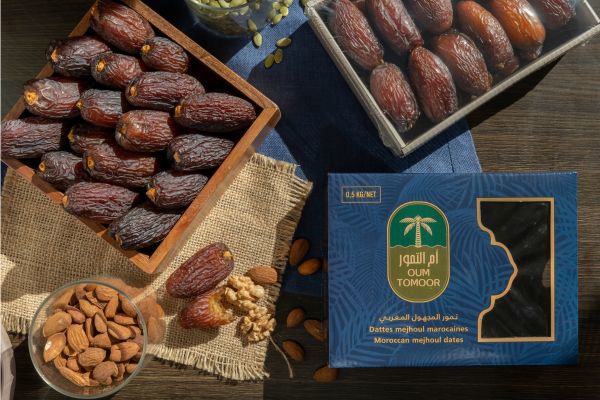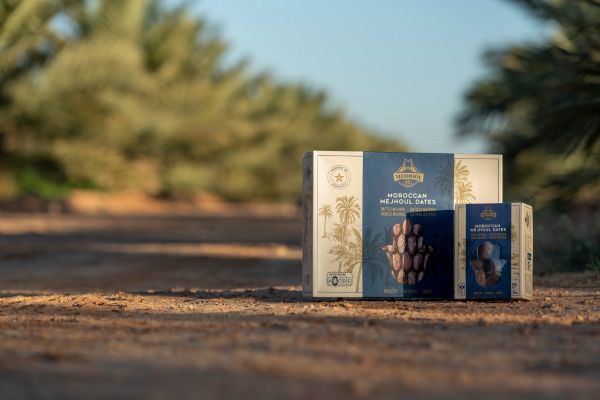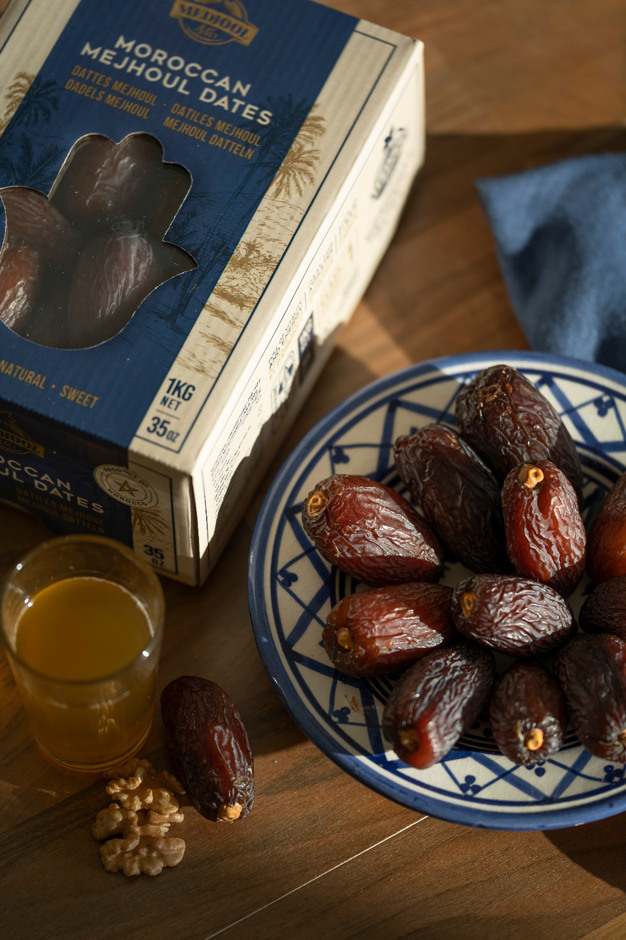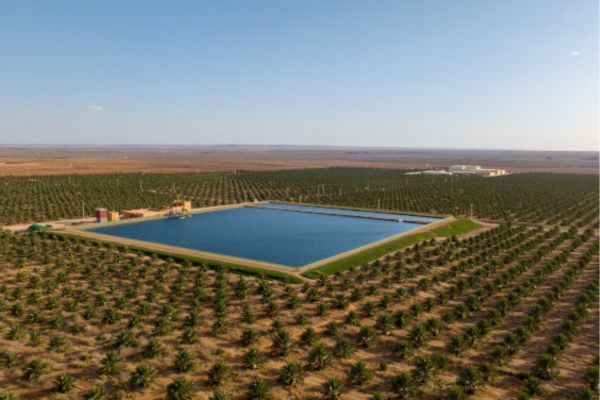"The Mejhoul date palm originated from the Tafilalet Valley in Morocco. Origination was confirmed by the DNA analysis of several samples of Mejhoul palms collected from diverse areas in the world". This is the result of a scientific study that traces the origin of the Medjool, the flagship variety of premium dates. The study was conducted by Dr. Abdelwahab Zaid and Dr. Abdellah Wahbi, and published in 2019 by the Khalifa International Award for Date Palm in the "Mejhoul Book", a 280-page book dedicated to the history of the variety.
"This story is a source of pride for Moroccan Medjool producers in the Boudnib region," said Reda Bennani, CEO of Medjool Star. "The Boudnib region has offered the world the best dates you can taste, and we continue to proudly carry the banner of this fruit across the world."

However, it is a fact that Morocco is not a leading exporter of Medjool, and other countries are even more recognized for its production. Part of the justification is provided by the Medjool book itself: "As early as the 17th century, Medjool was a very expensive product sold in Spain and England. Unfortunately, in 1919, the occurrence of the Bayoud disease intensively destroyed the Moroccan date plantations. Fresh Mejhoul variety dates disappeared from the European market after its production decreased significantly."
The second reason, according to Bennani, is that Medjool has always been in high demand in the Moroccan domestic market, so much so that there was no significant excess production for export. "Whatever the reason, today we want to reverse the situation and take back the position we deserve in the international Medjool market," said the producer.

This situation has improved in the last few years, according to Bennani: "The Moroccan government introduced the Green Morocco Plan in 2008, which gave big attention to the Medjool dates, and was reinforced with the Green Generation Plan 2020-2030 which aims to extend further this production. Our company was a major stakeholder in this context, along with other producers. All the palms we use in this framework are of Boudnib origin."
"Today, as the largest producer and exporter of Moroccan Medjool we hold the position of the heir of this history and the representative of Moroccan Medjool in the world", adds Bennani "We have put a lot of effort into restoring the Moroccan Medjool to its rightful place. Our efforts were rewarded, first by the Khalifa International Prize (KIP) for date palm and agricultural innovation that we won in 2019, and today we are seeing the fruits of our efforts concretely translated in terms of exported volumes and commercial targets."
Medjool Star is seeing its produce welcomed by the market, according to Bennani: "Production and export volumes are increasing every year. In the current season, we have reached our highest production volume, and we exported 50% of our production, against 40% exported last season. The Medjool Star brand, and through it the Moroccan Medjool, is gaining more and more notoriety especially in European markets, such as France, Spain, Belgium, the Netherlands and the UK, as well as in the Middle East. The majority of our customers return to place new orders, thanks to the high quality of the products."
 A quality that the mejhoul book describes so well: "Mejhoul, the “Jewel of Dates”, is known for its attractive appearance, large size, brownish colour, succulent and juicy flesh, and excellent taste due to its maple syrup-like flavour. It is currently the most important and desired date on the international market, as well as the most expensive compared to other date varieties. Mejhoul dates have natural sugar crystals that give its skin a slight shimmer, and when you bite into one, you’ll immediately notice the rush of flavours hinting at wild honey, cinnamon, and caramel. They are truly one of nature’s most delectable treats, tasting as if they have come right out of the oven."
A quality that the mejhoul book describes so well: "Mejhoul, the “Jewel of Dates”, is known for its attractive appearance, large size, brownish colour, succulent and juicy flesh, and excellent taste due to its maple syrup-like flavour. It is currently the most important and desired date on the international market, as well as the most expensive compared to other date varieties. Mejhoul dates have natural sugar crystals that give its skin a slight shimmer, and when you bite into one, you’ll immediately notice the rush of flavours hinting at wild honey, cinnamon, and caramel. They are truly one of nature’s most delectable treats, tasting as if they have come right out of the oven."
Bennani adds: "If Medjool produced elsewhere in the world comes close to this perfection, the original Moroccan mejhoul from Boudnib embodies it. Quite simply, if medjool is the king of dates, Boudnib's is the king of Medjools".
However, much work is yet to be done, adds the producer "after the phase of scientific research and documentation of the history of the variety, and the resurrection of our product on the international market, it is now our duty to protect and promote it. In this context, we are conducting intense communication and marketing efforts to promote the Moroccan origin, its proven quality and our ancestral know-how and make it available to consumers all around the world.”

"This project is carried by the entire population of Boudnib, adds Bennani, who puts its hopes in the development of the Medjool industry. We recruit almost exclusively a local workforce rooted in the culture of dates for generations, and we contribute with proven success in the employability and banking of the local community and the development of a whole ecosystem in the region such as new suppliers and service companies."
For more information:
Reda Bennani
Medjool Star
Tel: +212 682 96 50 03
Email: reda.bennani@medjoolstar.com
www.medjoolstar.com
